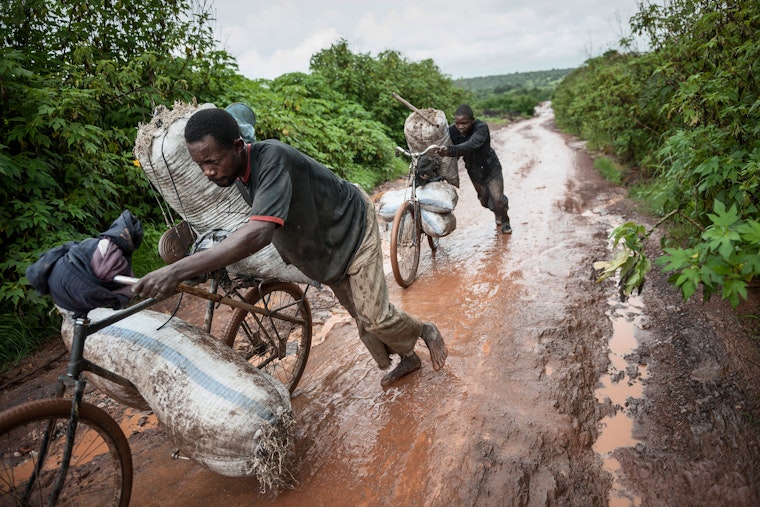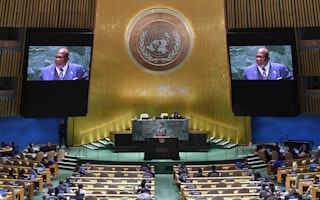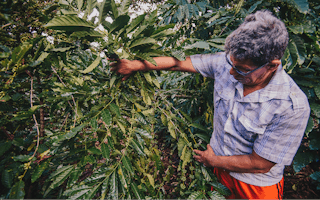Q&A: Why (Some) Investors Want More Regulation

As the EU works on rules to protect worker rights and the planet from corporate harm, Open Society’s Jon Jacoby spoke to Anita Dorett, of the Investor Alliance for Human Rights, about how investors are pushing for change.
Why are we seeing some large businesses flip the script and call for more regulation across their supply chains regarding human rights and environmental protections?
Thanks, Jon. I think there are a few reasons. The principal reason is that businesses want a level playing field. They want certainty.
The European Union is poised to take action implementing a strong due diligence law, which requires business to assess its impact on people and the planet and to take steps to prevent and mitigate the harms. This is an important piece of legislation that will move us from a place where companies that do business globally are asked to take action voluntarily to protect vulnerable workers, communities, and the environment, to one where many companies will be held much more accountable.
And as a business leader, you want to have a set of rules and regulations that apply to all players within this global marketplace. You don’t want a gap—a set of rules, for example, that apply in the EU but not in the U.S. and the rest of the world, which is why we are pushing for robust mandated due diligence in other national jurisdictions.
Tell us more about the proposed EU law. What would it require?
The draft law currently requires very large companies and large companies in three high-risk sectors to take all “appropriate measures” necessary to ensure respect for the rights of workers, indigenous communities, digital users, and other at-risk people in their operations and value chains. Businesses must also ensure that their day-to-day activities are not adversely harming the environment, such as contributing to deforestation or water pollution.
In the event of a business-related human rights or environmental abuse such as forced labor, union-busting, land displacement, or water pollution, victims could go to the courts to secure an appropriate remedy—and the corporate perpetrator could be held accountable through civil liability or monetary fines. In the face of real opposition from some business groups, we will need to continue to work to ensure that the law has enough teeth to shape and shift business behavior.
Where are the gaps in the proposed law?
As the law moves forward, we want to see improvements.
For example, due diligence should not be limited only to very large and large companies that would leave 99 percent of EU companies uncovered. Generally speaking, severe climate, human rights, and environmental impacts can occur in the activities of businesses of all sizes.
As it relates to the financial industry, we are particularly concerned that the law applies this standard only to very large financial institutions. This standard is not in line with extensive guidance from the UN and the OECD on applying human rights responsibilities to all financial actors, including institutional investors. We’d like to see a clearer formulation of directors’ duties for overseeing the implementation of due diligence measures.
We also believe that the law should reduce barriers to victims’ access to remedies. As currently drafted, the law puts too much burden on the claimants—asking them in some cases to provide information to courts to which only the companies have access.
Despite these reservations, we are heartened to see the EU contemplating robust action in this area—moving us from a largely voluntary approach to one with binding standards.
Is there broad recognition now that voluntary corporate measures in the last 30 years have not sufficiently or systematically advanced workers’ rights, racial and gender equity, and protection of the environment and its defenders?
Yes, I couldn’t agree more. We’ve observed over recent decades that voluntary initiatives have been, shall we say, insufficient to achieve widespread business respect for human rights around the globe. Scientific evidence tells us we are at a pivotal moment if we are to stop climate change. We need to hold companies to account for their impacts and empower human rights and environmental defenders to carry out their important work.
The Investor Alliance for Human Rights represents shareholders with over $10 trillion in assets. When you speak to investors about these regulations, what do you hear?
You know the concept of due diligence is not a new one. It’s been used in the business world for a long time.
I come from the business world as well. I spent 25 years as a mergers and acquisitions lawyer, where conducting due diligence was all about getting the transaction done, a lot of the due diligence was focused solely on financial information.
We looked, of course, at issues that impacted people. But it was more in the context of worker safety, for example.
Now businesses are beginning to recognize that they need to swivel that—to change their perspective. Now the question is more: how are people and the natural world impacted by your business over the long term?
Financial long-term performance is not something that just happens in a vacuum.
COVID really laid this bare. If you only consider business from the financials, all of a sudden you realize that you are not doing what you need to be around as a business for the next generation.
Leaving it to just look at things from the financial perspective is obviously not going to keep you going for the next hundred years.
And what is the role of the investor community in helping to drive this shift in perspective?
On the investor side, we have seen a great awakening around environmental, social, and governance—or ESG—issues. And we are proud to be the platform on which many investors can now make their views known about human rights issues, which are central to the “S,” but also apply across the “E” and “G.”
In the past, investors left it to the companies that they’ve invested in to be able to put forward and implement their workers’ rights and environmental policies.
But as a separate stakeholder—as a financial actor—investors increasingly recognize that we have our own responsibility to respect human rights and we want that reflected in our investments.
So one reason we are seeing more companies embrace more robust due diligence action is that it may provide them with access to capital.
Increasingly we are seeing institutional investors, private equity, and venture capital saying, “if we give you money, we want a robust due diligence plan that includes performance milestones address human rights risk. If you don’t meet them, you don’t get your money.”
The Investor Alliance was designed to draw and build upon the playbook of investors focusing on climate action. Is that happening?
Yes, part of the lesson learned is that the investor’s voice can help shift the focus from a shareholder primacy lens to a broader stakeholder lens. For 50 years, the Interfaith Center on Corporate Responsibility has led the charge to use investor power to catalyze social change, including setting up the Investor Alliance. This week, the Investor Alliance marks our fourth anniversary of shareholder engagement and action specifically advancing human rights globally.
For example, we recently saw—with the war in Ukraine—investors committing to undertake enhanced due diligence on their portfolios and to disengage from Russia where investments, such as in oil and gas, support the war effort. So norms are evolving about what constitutes socially responsible business behavior and especially when investing in businesses operating in high-risk and conflict-affected areas.
The climate debate shows that there are risks to operating your business without regard to these issues. That can create blowback which can impact your bottom line.
Now it is about widening the perspective even further to include human rights and social change issues. The idea here is to get out in front and do something good for people and the planet at the same time.
The Investor Alliance for Human Rights is a grantee of the Open Society Foundations.


